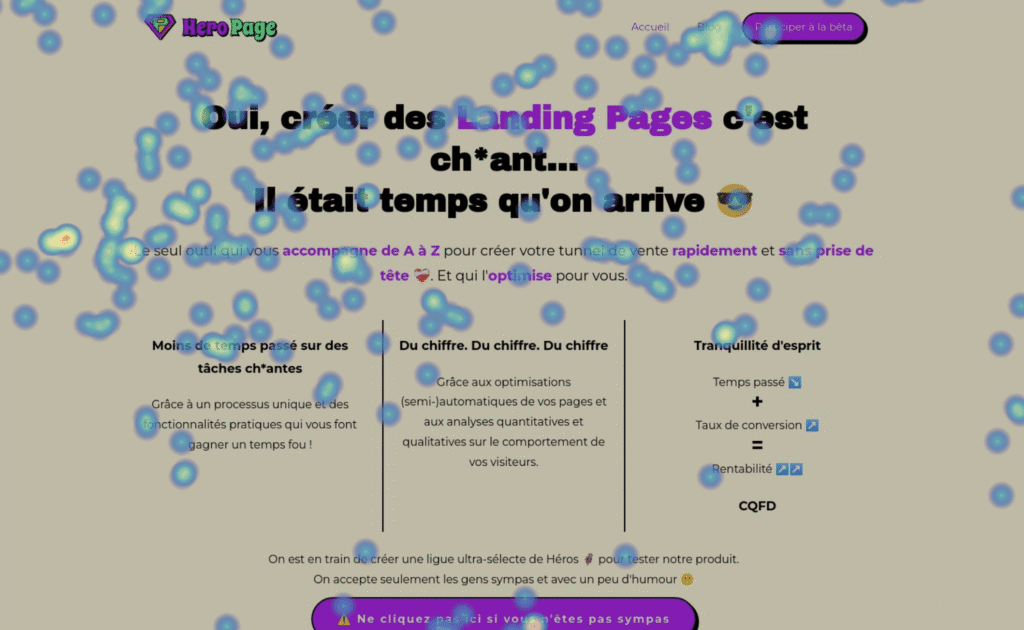Heatmaps have become an indispensable tool for marketers looking to optimize their Landing Pages.
These graphical representations allow for data visualization and quickly identify areas of interest on a website.
In this article, we will explore the world of heatmaps and see how they can transform your marketing approach.

What is a Heatmap?
A heatmap is a graphical representation of data where individual values are represented by colors.
The idea is to provide a visual insight into user behaviors and interactions with a web page.
For example, the redder an area is on a click heatmap, the more it is clicked by users.

Types of Heatmaps
There are several types of heatmaps, each with its own utility:
- Click Heatmap: Shows where users click the most on a page.
- Move Heatmap: Traces mouse movements to understand user focus.
- Scroll Heatmap: Indicates how far users scroll down the page.
- Attention Heatmap: Analyzes the time users spend on different sections of a page.
Importance of Heatmaps in Marketing
Heatmaps are crucial for understanding user behavior.
They help identify elements that attract the most attention or those that are ignored, which helps to:
- Optimize Calls to Action (CTA) by positioning them strategically.
- Improve UX/UI Design by adapting the content according to audience preferences.
- Increase conversion rates by eliminating barriers that hinder user engagement.
How do Heatmaps Work?
Heatmapping tools collect data from user interactions on your website.
They then use algorithms to transform this data into intuitive visualizations
Here is an overview of the process:
- Interaction Tracking: Tools capture clicks, mouse movements, and scrolling patterns.
- Data Processing: Information is analyzed and organized to be visually represented.
- Creating the Heatmap: Data is converted into a colorful graphic showing areas of high interest.
Examples of Heatmap Use
Many companies use heatmaps to improve their marketing practices.
For example:
- An e-commerce can detect less visible products and rearrange its page to highlight them.
- A blog can analyze content that retains the most attention to produce similar articles.
- Startups can adjust their homepage based on the areas that receive the most engagement.
Choosing the Ideal Heatmap Tool
Marketers have a choice among several heatmap tools such as Hotjar, Crazy Egg, and Lucky Orange.
The choice of a tool depends on your specific needs:
- Budget: Some tools offer free versions or limited trials.
- Features: Check the options provided like session recording or advanced heatmaps.
- Ease of Use: Choose intuitive platforms that do not require advanced technical skills.
HeroPage also plans to have its own heatmap tool included in the free version 😉
Heatmaps and Landing Page Optimization
For companies looking to improve their sales pages, heatmaps are a valuable asset.
They help to:
- Identify areas where users leave the page.
- Optimize product placement according to the attention they receive.
- Adjust content to meet user expectations and enhance the overall experience.
Conclusion
By adopting heatmaps, you can make your data analysis more visual, fun, and accessible.
This is an approach that simplifies sales page optimization while increasing the effectiveness of your marketing strategy.
Opt for this tool to make your projects a real success without compromising simplicity and accessibility.


0 comments